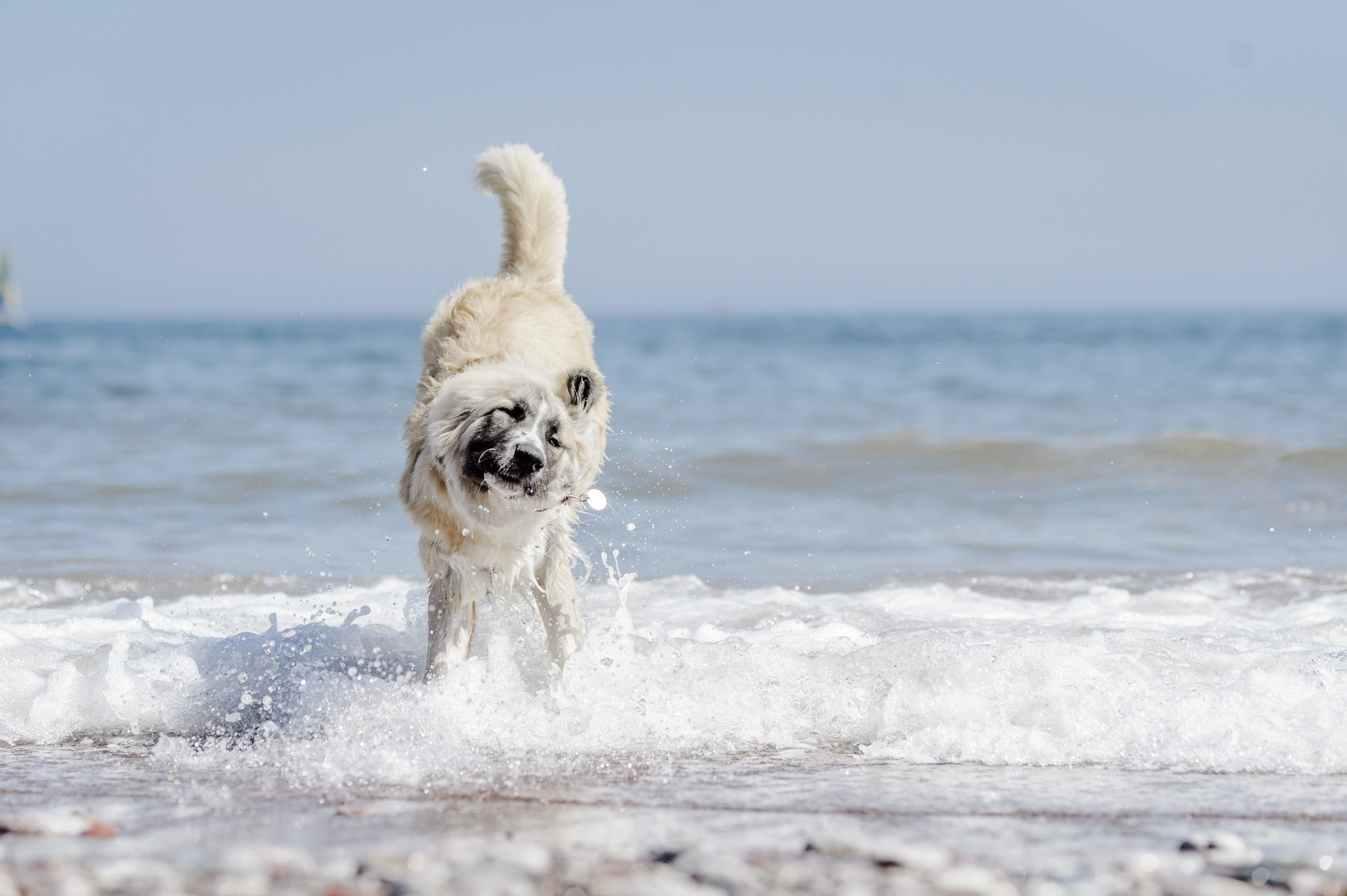
Top tips for keeping your dog cool – and safe – in summer
Helping your dog to stay cool in the summer can prevent heatstroke.
When the summer arrives dogs not only feel hot and bothered, but they’re also at higher risk of heatstroke. Keeping them as cool as possible during the warmer months is vital to keeping them safe.
1. Keep them hydrated
Keeping your dog hydrated is the most important step in a heatwave. You should give your dog plenty of opportunities to drink cool, fresh water. Place multiple bowls in different spots around the house and in the garden. You can also put ice cubes in their water to keep it cold.
2. Walk them at cooler times of the day
Dogs usually need daily exercise to stay stimulated, but a walk in the strong midday sun can be dangerous. Walking and other energetic activities, such as ball play and running with your dog, can put them at risk of heatstroke. A gentle walk in woodland or forest provides more shade and is safer than playing in the park. Alternatively, you can go for a walk to a swimming spot such as a stream to give your dog an opportunity to cool off.
On walks in the heat, you may also risk their paw pads getting burnt. As a general rule, if the ground is too hot for your hand, it’s too hot for your dog’s feet. Make sure to walk your dog at cooler times of the day – such as first thing in the morning – to avoid the hottest temperatures. At night, the humidity may increase – check the forecasted temperature before you head out on an evening walk.
3. Let your dog rest
In temperatures above 20 degrees celsius, you may need to limit exercise altogether. Even temperatures cooler than this can still affect overweight or flat-nosed (brachycephalic) breeds. Many dogs will want to rest just like we do, so give them plenty of space and avoid over-excitement.
If your dog is restless or bored, try some treat puzzles, brain games or refresh their basic training. This can keep their brain stimulated without increasing their body temperature.
4. Use a paddling pool
A paddling pool in a shady spot can provide a refreshing escape for your dog. As dogs release heat through their paws, it's an effective way of cooling them down quickly. Fill the pool halfway with cold – but not freezing – water, and add some of your dog’s favourite toys to encourage them.
While some dogs will dive straight in for a splash, others may need more encouragement. Dampening their coat also provides effective cooling, so you can quickly bathe them before letting them jump out. On the other hand, some dogs may get very excited in a paddling pool. It's possible to overheat in water if they are playful, so monitor your dog carefully and remove the pool if they're getting over-excited.
5. Provide cooling mats and ice packs
Your dog may gravitate towards cool surfaces when they feel hot. There are a range of specially-designed cooling mats available to buy. These are especially useful if you do not have any cold or stone surfaces in your home. Some of these mats work best when cooled in the freezer, while others have self-cooling technology.
You can also use freezer blocks or packs, or even a frozen bottle of water, wrapped in a tea towel or blanket. Placing this in your dog’s bed will have a similar effect at a more affordable price.
6. Use wet, cool towels
Wetting your dog’s coat can help to lower their body temperature. This is especially useful for dogs suffering from heatstroke. To keep them cool, drench a towel in tepid water and drape it over your dog. Leave it on for short periods of time and make sure to remove it once the towel has dried as it may make your dog feel warmer.
7. Use cooling coats and collars
You can buy cooling coats, harnesses and collars, providing long-lasting cold effects. These are activated with water. When the moisture evaporates it draws out the heat from the dog’s body, cooling them down. While this type of cooling equipment can be pricey, they can be especially useful for dogs who still need exercise in warmer temperatures.
8. Make some ice treats
For dogs who are motivated by food, ice treats can be an easy way to cool them down. There are some simple, affordable recipes you can try:
- Ice licks
- Ice popsicles
- Frozen fruit and vegetables
- Frozen Kong treats
Remember to feed treats in moderation and ensure ice cubes are an appropriate size for your dog.
9. Get a fan
Many homes are not equipped with air conditioning. Instead, you can place a fan next to your dog’s usual lounging spot and give them an extra cooling breeze by putting some frozen water bottles in front of it. Make sure that your dog can avoid the breeze if they choose.
10. Play with cooling toys
If your dog always has a toy in their mouth, then pop their favourite one in the freezer for a quick cooling fix. Some toys are specially made to be filled with water and frozen, making them stay cooler for longer.
11. Use water mists and garden sprinklers
If your dog is comfortable with water you can fill a spray bottle and regularly mist their body – just make sure to avoid their face. Alternatively, a sprinkler in the garden can keep their body temperature down. Be careful that your dog does not get too overexcited when playing, as this can make them overheat.
12. Be careful of hot cars
Cars can become excessively hot in a short space of time. Never leave your dog in a car, even if only for a moment. If you’re planning on travelling in the car with your dog, make sure to take water and a bowl with you. Roll down the windows slightly or turn on the air conditioning to encourage air circulation, and schedule stops to allow your dog to cool down and have a drink.
Heatstroke in dogs
Heatstroke can be fatal and requires urgent veterinary attention. Look out for these signs of heatstroke:
- Collapse
- Lethargy
- Excessive panting
- Vomiting or diarrhoea
- Purple gums and redness of the skin
If you spot any symptoms, move your dog in a shady spot and keep them still. Offer them plenty of water and dampen their coat with tepid water. Contact your vet immediately.
Important
Take extra care with short nosed (brachycephalic) dogs, older dogs, puppies and those that are overweight.
Page details
Reviewed
• 1 June 2023
Next review
• 1 June 2026









